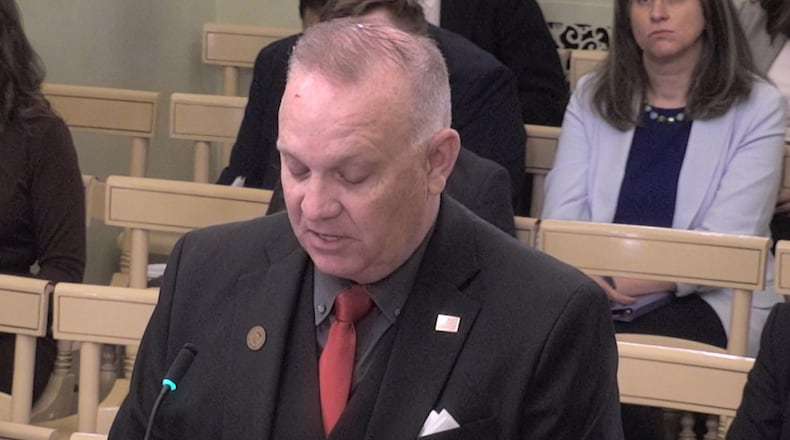In negotiating on behalf of those clients, PBMs influence how much drugs cost through negotiating rebates with the drug manufacturers and they can also set the reimbursement rates for pharmacies, the Ohio Pharmacists Association says.
“Many communities and constituents in our districts are facing, or will soon face, a health care access crisis as community, independent pharmacies, along with large to mid-size pharmacies, will be rapidly closing,” said Rep. Tim Barhorst, R-Fort Loramie, one of the sponsors for the bill.
Advocates for pharmacies say PBMs’ businesses practices can lead pharmacy closures, many saying the reimbursements pharmacies receive for dispensing certain drugs is lower than what they paid to stock them.
PBMs say their practices reduce drug prices.
“Americans clearly recognize that drug companies are solely responsible for setting and raising drug prices, and using tactics that block competition that would otherwise put downward pressure on drug costs. While this might help boost profits, these pricing decisions have a direct impact on patients and their out-of-pocket costs,” said JC Scott, president and CEO of Pharmaceutical Care Management Association, a national trade group for PBMs.
Regulations for PBMs in House Bill 192 center on transparency around drug costs, as well as imposes violations for PBMs who don’t follow the regulations. Health insurers also could not require a pharmacy to meet accreditation standards or certification requirements different from those required by the State Board of Pharmacy.
Similar regulations against PBMs are included in the state budget bill passed by the Ohio House.
Under provisions in the state budget bill, PBMs would be required to reimburse Ohio-incorporated pharmacies that dispense a drug product for the “actual acquisition cost,” i.e., the amount paid to the drug wholesaler, plus a minimum dispensing fee determined by the Superintendent of Insurance.
PBMs could not reimburse an Ohio pharmacy less than the amount the PBMs reimburse their affiliated pharmacies for providing the same drug product. An Ohio pharmacy would also be allowed to decline to provide a drug product if the pharmacy would be reimbursed less than the required amount.
House Bill 192 goes a step further to say PBMs would have to provide regular reporting on the drug claims it processes. The additional regulations under this bill include:
- PBMs would be required to submit to the Superintendent of Insurance and its contracted insurers and plan sponsors a quarterly electronic report of all drug claims processed by the PBM during the previous month.
- The report must include an itemized list of the actual acquisition cost of each drug product from all drug claims processed by the PBM in the previous quarter, with specified information about the drug’s acquisition.
- This bill also prohibits any agreement between a PBM and an insurer from prohibiting the disclosure of the information required in the itemized list.
House Bill 192 had its first reading in the Ohio House Insurance Committee on Tuesday.
About the Author

